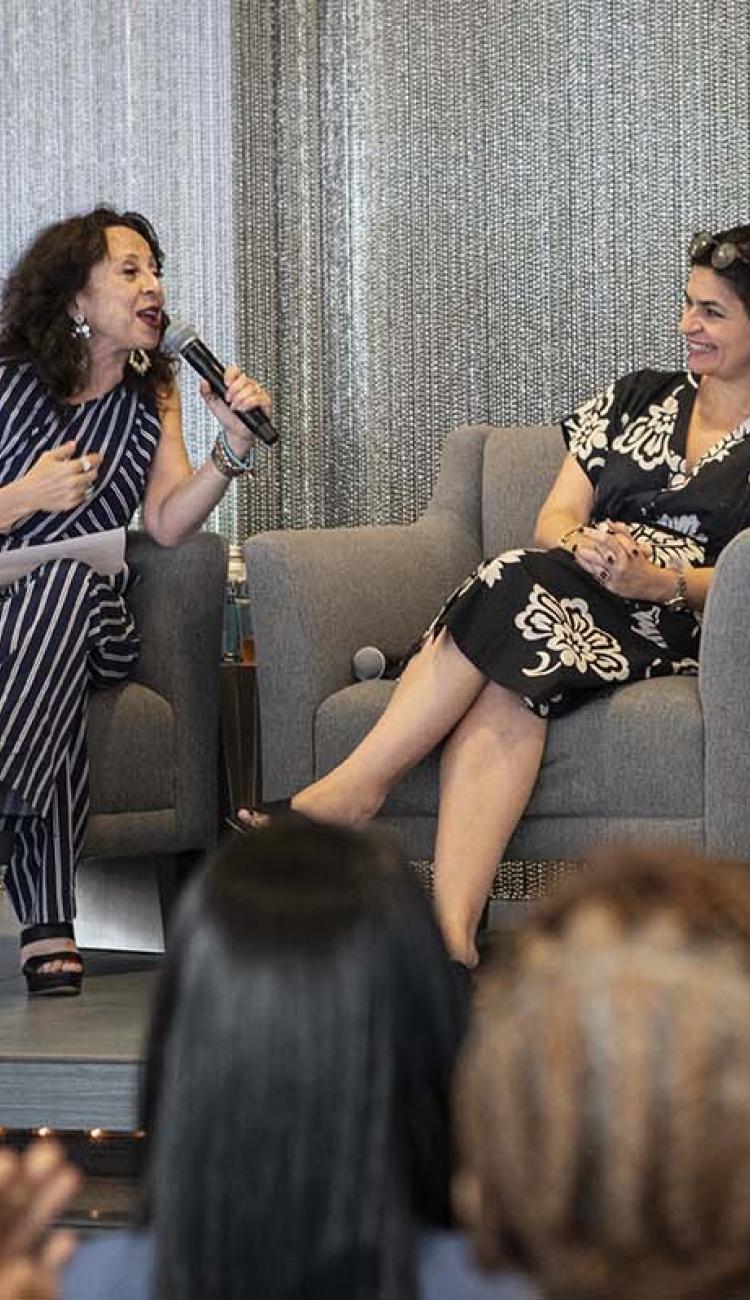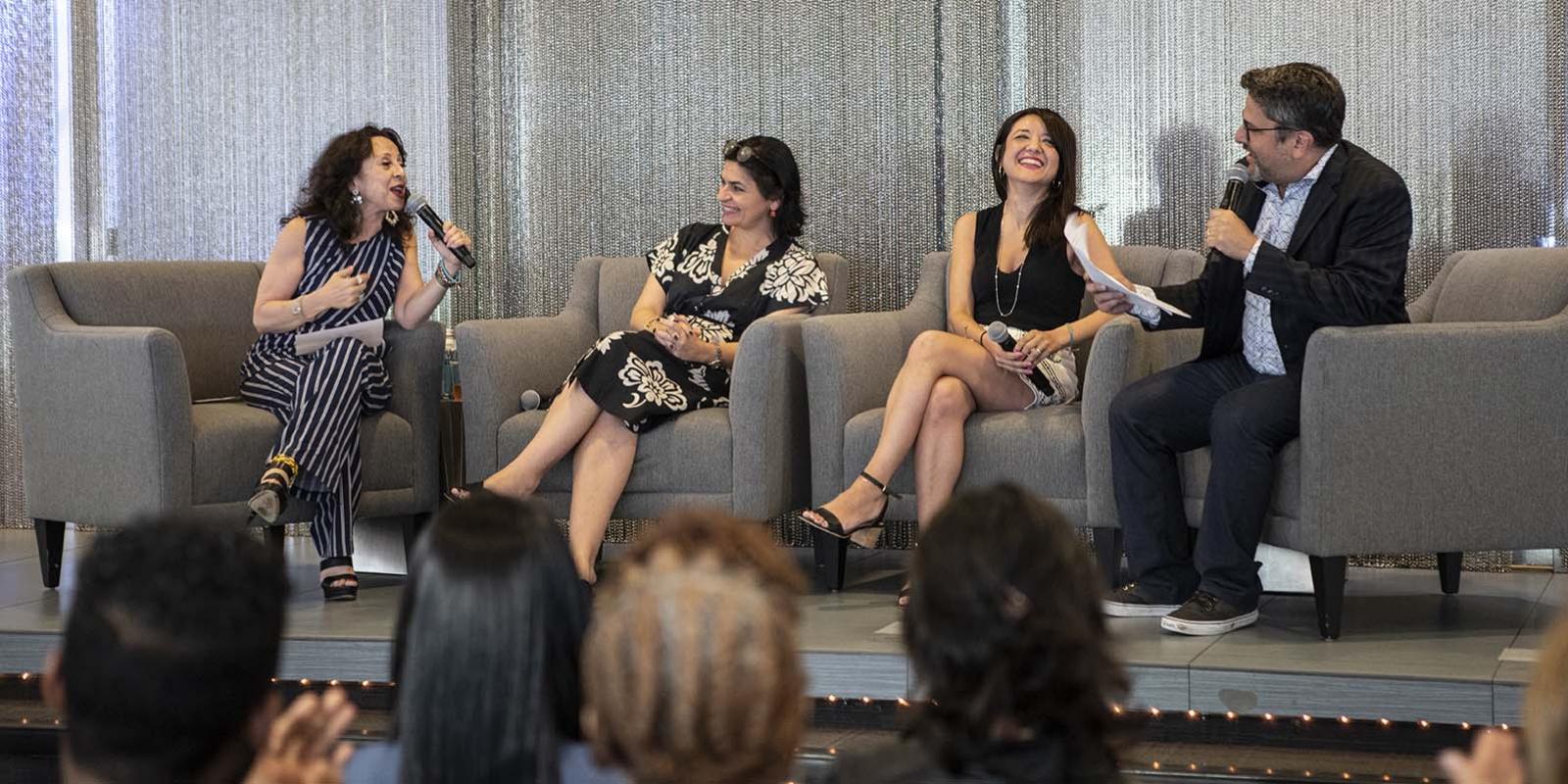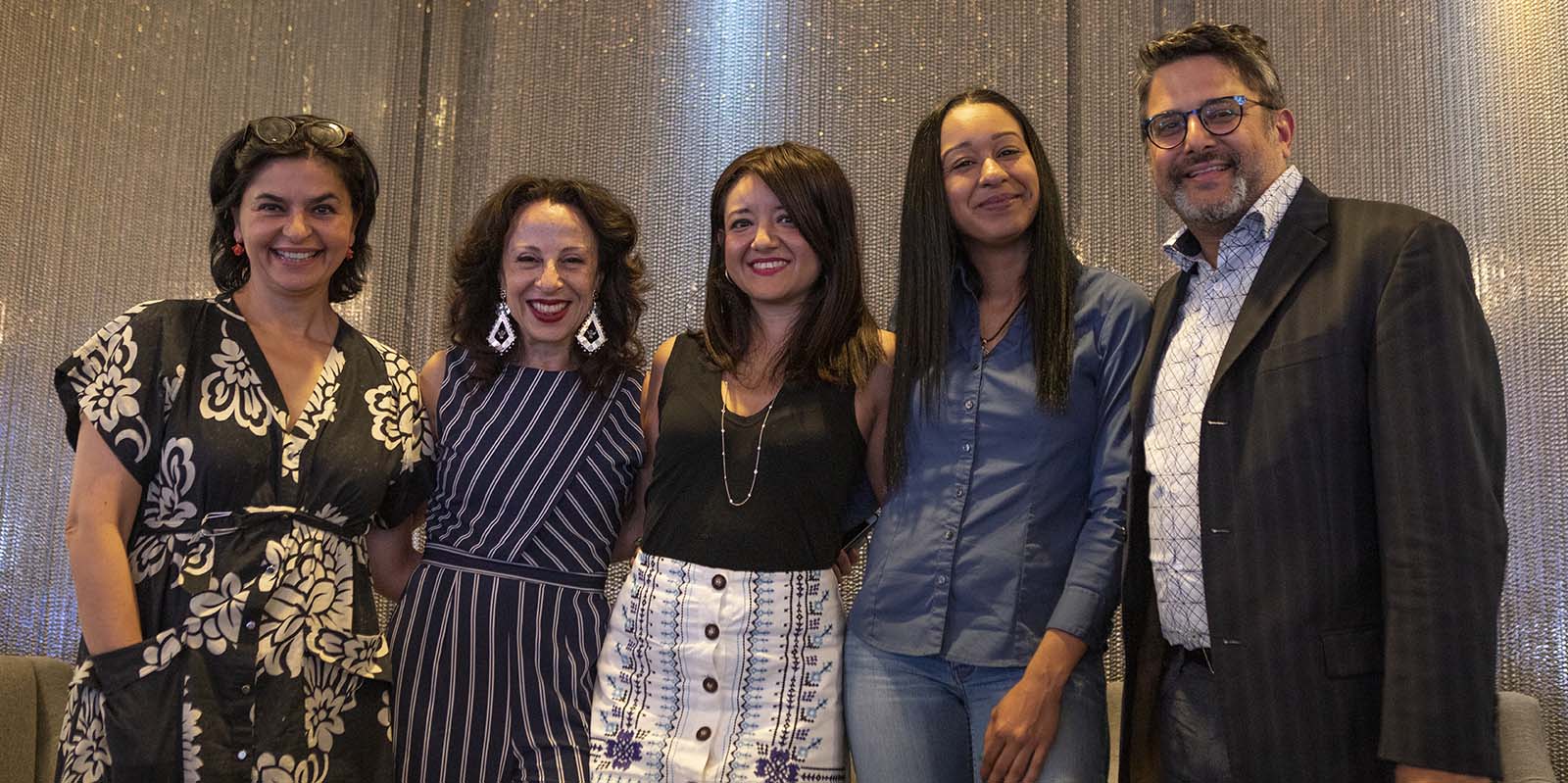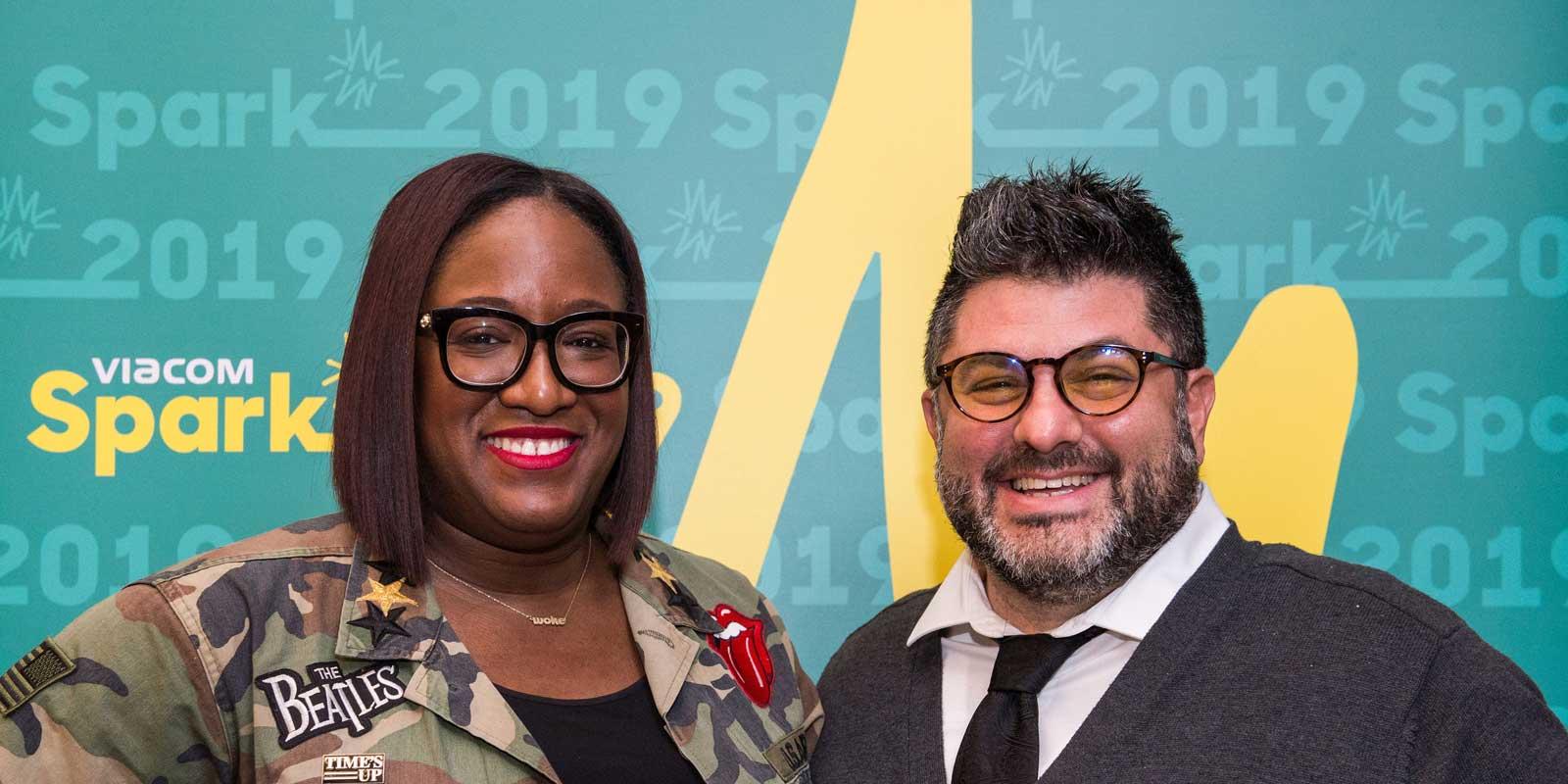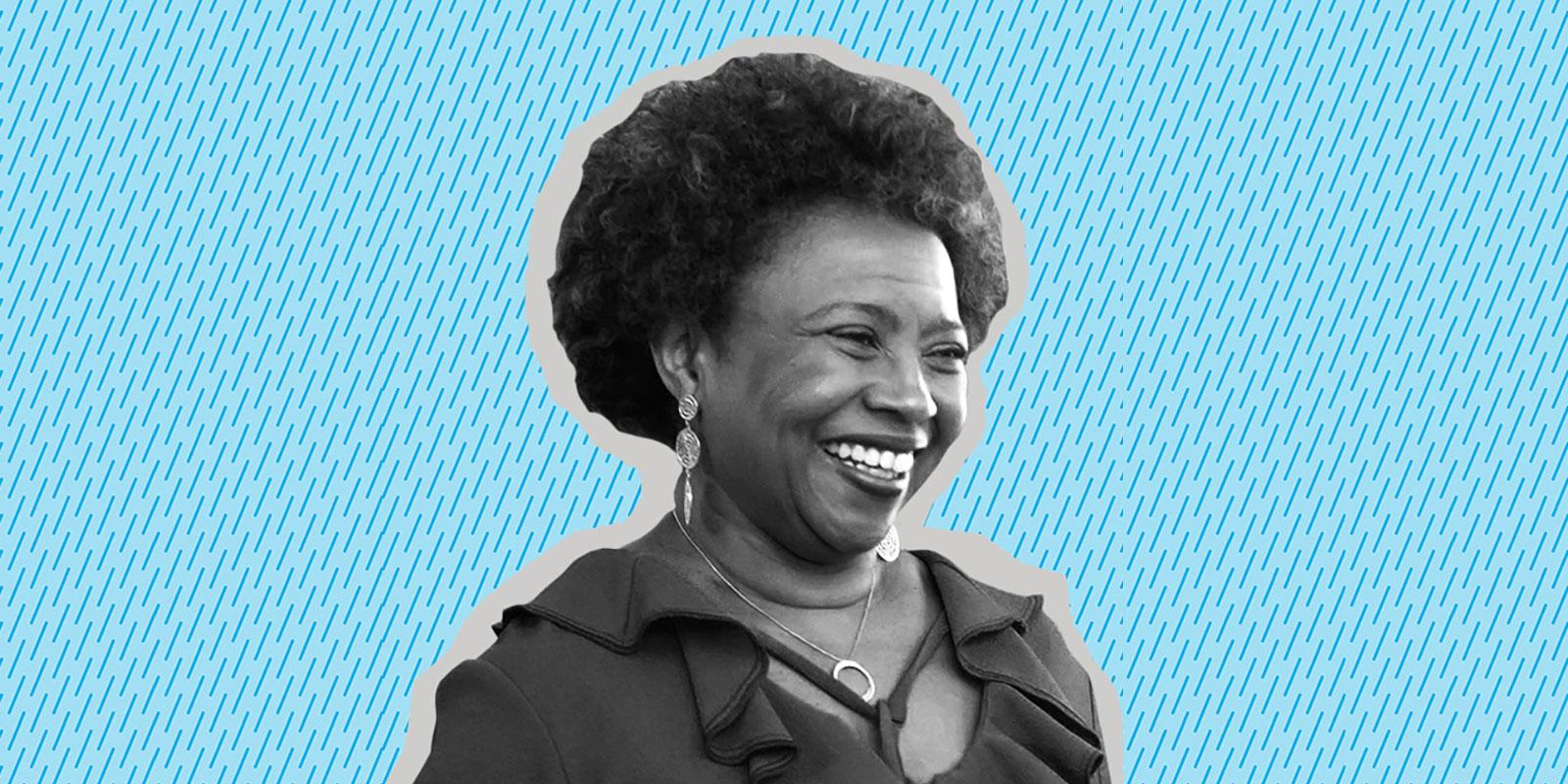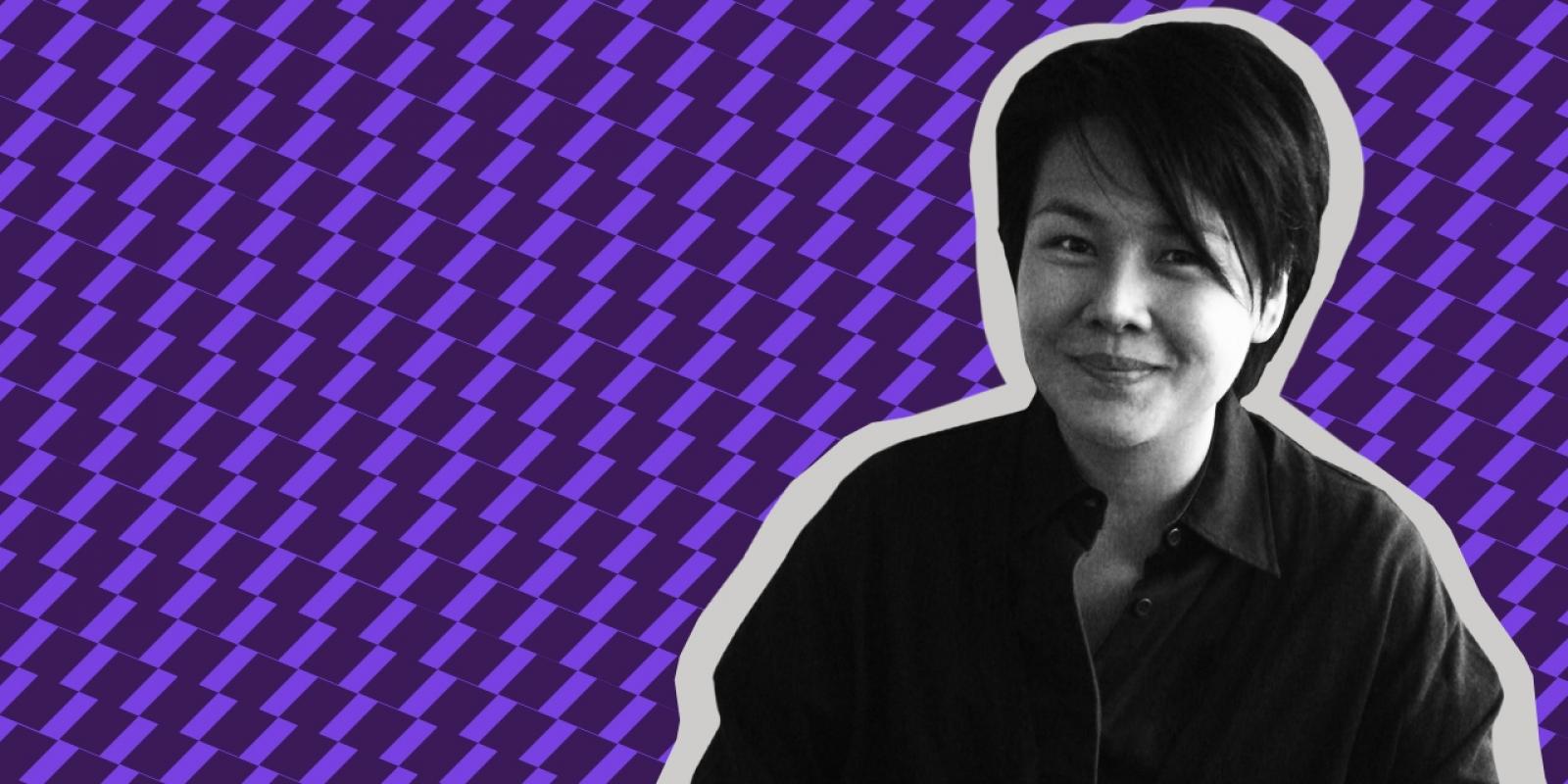Jun 14, 2019
“I believe so strongly, especially in our industry, that personnel equals policy.”
Journalists Maria Hinojosa and Julio Ricardo Varela recorded an episode of their In The Thick podcast at Viacom’s Times Square headquarters last week, moderating a panel that explored how underrepresentation in the production and executive ranks feeds a skewed media portrait.
The panel, co-hosted by Hispanic employee resource groups from Viacom (Somos) and HBO (Alianza), included employees from both companies.
Insights from the panelists gave human perspective to the need for more diversity within the television industry over the last several years. Amid the Time’s Up and #MeToo movements, companies have been forced to address a legacy of gender and racial discrimination in front of and behind the camera to succeed in appealing to increasingly diverse viewers. As the most recent Diversity in Hollywood Report from UCLA asserts, “today’s diverse audiences, the evidence shows, prefer film and television content populated with characters to whom they can relate and whose stories drive the narrative.”
The Disconnect Between Reality and Television
Hinojosa led the panel with a sobering statistic of immigrant representation on-screen, citing a recent USC Annenberg/Norman Lear Center study finding that immigrants constitute 14 percent of the U.S. population, but only 11 percent of onscreen roles portray immigrant characters. This is what happens, Hinojosa noted, when our mainstream media is, “produced and overseen and created by white men for all of us.”
Doris Casap, senior vice president of film programming at HBO, pointed to a disregard for data as a contributing factor to the mismatch between under-representative programming and an increasingly more diverse audience.
“If you are Palmolive or you are a brand company, you do a study,” she said. “You say, okay, our Latino clients went from 17% to 34%. What colors do they like? We're going to test it out. We put purple on it. ‘Oh my God, the sales have gone up.’ You know that right away. But we have people in our industry who want to follow their own taste ... I believe so strongly, especially in our industry, amongst others, that personnel equals policy.”
Casap, who immigrated to the United States from a small town in the Bolivian Amazon as a child, says that executives should push to change that culture from within.
“If we are sitting in seats, we use every single ounce of our power and influence to push, to push, to constantly ask,” said Casap. “When I had years of wonderful young white privileged girls be my interns, I called the head of internships and I said, ‘I'm not seeing enough candidates of different colors and different socioeconomic backgrounds.’”
According to Varela, it’s vital for companies to create a framework that encourages employees to speak up.
“I think we also have to recognize that there are working environments where speaking out is kind of like oxygen,” said Varela, addressing Hinojosa, who hired him as her podcast co-host. “You told me that when I interviewed with you, you're like, ‘if you stop being a Latino rebel, you're an idiot. I want you to speak out.’”
From L to R: HBO's Doris Casap; In The Thick's Maria Hinojosa; Comedy Central, TV Land and Paramount Network's Erika Soto Lamb; HBOs Jessica Leonardo; and In The Thick's Julio Ricardo Varela after a live taping of the 'In The Thick Podcast' at Viacom's Times Square headquarters on June 4, 2019.
Encouraging Diversity Off-Camera
Erika Soto Lamb, a self-described “border girl” who grew up in El Paso and took her role as vice president of social impact for Comedy Central, Paramount Network, and TV Land in the past year, detailed how a brand could evolve to appeal to more diverse audiences.
“I work for a brand and a company that has experienced a lot of evolution and I'm really proud of that,” said Lamb. “I believe that representation matters in all of the sources of power, whether that is politics or entertainment.”
She cited Comedy Central’s selection of South African immigrant Trevor Noah to replace John Stewart on The Daily Show, as well as women-led Broad City and Hispanic-American led Alternatino as examples of how the network has pivoted away from its more constrained past.
Viacom has a strong legacy of diversity in programming and production. Its executives are required to go through inclusive leadership training, and executive compensation is tied to ability to create inclusive work environments. HBO parent company WarnerMedia was the first major studio to go public with a diversity and inclusion policy last September. Both companies have programs that usher under-represented talent into their first production roles (Viacom sponsors the Nick Writing and Nick Artists programs, and will begin recruiting the second candidate class for its Viewfinder directors program this month).
Jessica Leonardo, a first-generation Dominican and mother of two from The Bronx, recently left her job as a patient care technician to work as a production assistant on HBO’s Divorce, an opportunity she found after participating in Warner Bros.’ WB Access to Action program and HBO’s PA Training Program.
Such programs help those without connections in the media discover jobs they would have had little chance to find otherwise. Leonardo, for example, chose hospital work partly for the good union wages and partly because she couldn’t imagine how to get started in TV production.
“I do not know anybody in film or have any family or friends or the connection to know anything about the film world,” said Leonardo, who faced the additional obstacles of being a single teen mom and high school dropout.
Even for those who can find them, the internships and low-paying entry-level roles that are the traditional gateways into entertainment are not practical options for people whose families cannot financially support them while they move up the ranks.
Leonardo said she had to use food stamps to feed her children after leaving her hospital job. The pay cut, she said, has been worth it. She has achieved far greater personal satisfaction, she said, earning minimum wage and working more than 60 hours per week than she ever did as a nurse.
“I want to show that we are ambitious and we are dedicated,” Leonardo said, speaking of the Dominican-American community that she is part of. “Wait a minute. I don't want to work maintenance in the freaking Motel 6. I want that job over there.”
The podcast streamed live on Facebook. Listen to it here.
